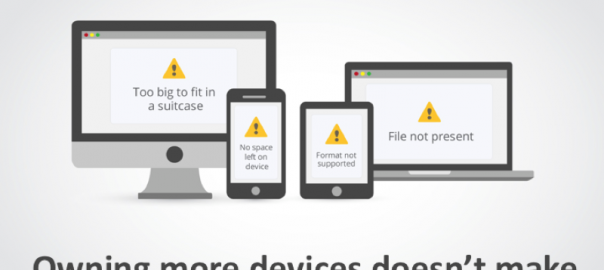If you need to raise funding from VCs for your startup, the first step is to create a pitch deck. Well, after step zero, which is to have a great idea.
So what’s a pitch deck? A pitch deck is a brief presentation (usually based on slides) that provides the audience with an overview of your business. It is often created using PowerPoint or Keynote.

For the purpose of funding, it gives potential investors a brief idea of what your business is about, who your target audience is, and other relevant information that will help convince them to write you a check.
A pitch deck is an essential fundraising tool, whether you’re looking to raise $ 50,000, $ 500,000 or $ 50 million.
Creating a pitch deck is not an easy task. If you’ve never done it before and you’re a first-time entrepreneur, it can be incredibly daunting.
Your emotions will be filled with a mix of excitement and nervousness about raising your first round of financing for your startup. What do you include and leave out? This is your baby we’re talking about; surely you need to show everything, right?
To help you with this daunting task, why not take some cues from other startups who’ve raised money from angel investors and VCs? I’ve compiled a list of 30 of the best startup pitch decks to help you to use as reference. These are the pitch decks of some of your favorite tech brands that you use every day. These pitch decks definitely helped them get to the top.
Hopeuflly these deck will help you understand what persuades an investor to write a check for an entrepreneur’s idea. We hope they provide some insight into the ebst way to get inside a potential invertor’s head.
We’ll also touch upon the best takeaways from each deck so you’ll get an idea of what to include in your startup pitch decks.
If you’ve already put together a great pitch deck and you have some advice, we’d love to hear it in the comments!
From behemoths like Facebook and Youtube to up-and-coming superstars like Buffer, together these startups have raised millions of dollars and are now worth billions!
1. Facebook

I’m sure you’ve heard of them. Here’s a fun fact: Peter Thiel, the billionaire venture capitalist and entrepreneur, was the first outside investor in Facebook back in 2004. That’s when Mark Zuckerberg first set out to turn his dorm room project into a lasting business. Zuckerberg received $ 500,000 from Peter Thiel.
While they don’t have an investor pitch deck, they do have a media kit containing the company’s value proposition, key metrics, and marketing services that were used to sell ads to potential clients.
Favorite takeaway: The focus of the pitch deck was based on solid numbers such as their user engagement, traffic, users, and growth metrics.
2. Airbnb
Airbnb is a platform that allows people to list, find, and rent lodging.
This company is one of the greatest startup success stories of our time. Airbnb’s pitch deck has become a favorite reference for entrepreneurs around the world.
Favorite takeaway: The biggest takeaway from Airbnb is the intro. It’s all about hooking your audience. You need to describe your business using as few words as possible. Imagine telling a 5-year-old what your business is about. If you can’t do that, it’s time to rethink your intro to your investors.
3. Buffer
Buffer is a social media scheduling platform that helps you schedule content to Facebook, Twitter, Linkedin and Pinterest
The almighty startup pitch deck that Buffer used to raise half a million dollars is a popular deck because of Buffer’s transparency. The founder decided to put it up to help other startups to raise funds.
Favorite takeaway: Similar to Facebook, the deck was based on solid numbers from Buffer’s users (e.g. 800 users, $ 150,000 annual revenue run rate, etc.)
4. Square
Square is a company that allows merchants to accept mobile credit card payments via a dongle.
Favorite takeaway: Social proof! It doesn’t hurt to promote the management team if they’ve been with Twitter, Google, Linkedin, Paypal, and more. I think it shows that your management team’s experience is an armor to the company. This detailed pitch deck outlines Square’s business model and a simple financial model that portrays their annual revenue and five-year growth rate.
5. LinkedIn
Founded in 2002, LinkedIn is the top business-oriented social networking platform.
The company’s pitch talks a great deal about company vales, the value the network brings, and how it’s different than other social networks.
Favorite takeaway: The deck also provides an extensive analogy to showcase to investors what LinkedIn is. For example, it talks about “Web 1.0” vs. “Web 2.0”: Alta Vista was “Search 1.0”, and Google was “Search 2.0”. The deck talks about how LinkedIn is “Networking for Businesses 2.0”.
6. Mint
Mint is a personal financial services tool that helps people track their spending and find ways to save money.
This deck was used in a competition and was never used for raising money, but it’s still a powerful deck that startups can learn from.
Favorite takeaway: This simple deck provides a clear value proposition to customers and investors. The creators of this deck also understood that one of the key concerns of an investor is the exit mechanism of his or her investments. I love how the deck highlights a number of exit strategy options.
7. MapMe
MapMe allows users to create universally accessible (i.e. on smartphones, tablets, and computers) maps of anywhere they want with no coding required.
This deck was used to raise their $ 1 million in seed funding.
Social proof almost always work. The deck showed that the startup had over 20,000 unique visitors, 18,000 monthly alerts, 12 minutes average sessions on the site.
Favorite takeaway: The deck has fewer than 13 slides but provides investors with knowledge of traction the site got going viral on social media and their go-to-market strategy.
8. LaunchRock
LaunchRock allows users to create landing pages and quickly get their startups known through social media, even before the launch of their full site.
Favorite takeaway: One the better-designed decks, the deck had only 15 slides but showed how the product works and the different ways it can be used. They also utilize an analogy similar to what Linkedin had in their decks.
9. Mixpanel
Mixpanel is an advanced analytics platform for mobile and the web. They not only measure page views but also analyze the actions people take. This is the series-B deck for Mixpanel that helped them raise over $ 65 million.
Favorite takeaway: The deck started off with a problem: people guessing their analytics. It followed up by providing their solution to that problem and, ultimately, their competitive advantage.
10. Moz
Moz started out as a SEO company but has pivoted to support marketers across all inbound marketing strategies.
This is the series-B deck for Moz which they used to raise over $ 18 million. If you’re an established startup, you can follow this guide. The deck is packed with information about the company since it was founded five years prior to this pitch.
Favorite takeaway: Because the company had already been in operation for five years, they were able to present an accurate estimated revenue, revenue run rate, average customer lifetime value, cost of paid acquisition, etc.
11. Buzzfeed
We all have a love and hate relationship with Buzzfeed, don’t we? I’m sure you’ve stumbled on their pages or watched their videos before.
As of today, BuzzFeed has managed to raise over $ 240 million.
Favorite takeaway: SOCIAL PROOF! It doesn’t hurt to start a pitch with big numbers the company has, like the millions of users visiting the website on a monthly basis and quotations from large organizations such as CNN.
12. Youtube
Youtube was acquired by Google in 2006 for $ 1.6 billion. Like Facebook, this company doesn’t require any introduction. Unfortunately, this is not the original deck. This is Youtube’s pitch deck to Sequoia Capital (one of the most established VC investors who’s often regarded as one of the industry’s best), which was released through a legal proceeding.
Favorite takeaway: The company wanted to be the primary outlet for video content, and it succeeded doing just that. It goes to show that if you know what your product can do, are able to show its potential, and build on the momentum gained through early investments to create that, then you can achieve its potential.
13. Manpacks
Manpacks is a platform that delivers men’s essentials such as underwear, razors, grooming and other products.
The company raised $ 500,000 with this deck.
Favorite takeaway: This deck stands out! They clearly understand who they are, and they stayed that way throughout the entire pitch. The deck is filled with a fun tone that helps explain the product well.
14. Foursquare
Foursquare is a mobile platform that helps you find the best places to go in your area.
Favorite takeaway: This deck does a great job using screenshots of social proof that the app already has from its users sharing tweets of them being ‘mayor’ of a particular area.
15. Flowtab
Flowtab was an app that allowed people to order drinks quickly at a crowded bar. Despite shutting down, the founders still made it an effort to help other startups.
Favorite takeaway: Simplicity. This deck does well explaining critical information like the problem, the solution, their business model, and traction. You can’t really go wrong with this.
16. Dwolla
Dwolla is a payment solution that allows users to send, receive, and request funds from other users. This 18-slide pitch deck landed the company $ 16.5 million.
Favorite takeaway: Most startups are founded because of a problem they faced, but not many people tell their story well through their pitch decks. Dwolla shared a great story of how the founder paid $ 50,000 a year in credit card fees and then created a solution for never doing it again.
17. ZenPayRoll (Now Gusto)
Gusto (previously ZenPayroll) is a cloud-based solution tool for small businesses to pay employees.
The company raised $ 6 million with this deck.
Favorite takeaway: This isn’t just a startup deck. It is a template that you can use and replicate easily by filling in the blanks.
18. Bliss
Bliss provides metrics for coders and allows them to collaborate easily.
The company raised over $ 400,000 using Angel List.
Favorite takeaway: The deck was well composed with a clear understanding of the product and the investors they were pitching to.
19. Adpushup
Adpushup allows companies to maximize ad revenues through advanced A/B testing. They raised more than $ 632,000 in investments.
Favorite takeaway: Going back to the basics works. This deck has the basic principles like a great introduction, an outline of problems, potential solutions, market opportunities, products, case studies, milestones, traction, and a future plan.
20. Wealthsimple
Wealthsimple is Canada’s first online investment manager. They raised more than $ 2 million in seed funding.
Favorite takeaway: The deck is sweet and short but effective. My favorite part is the transformation of industry, which is laid out on a table format.
21. AppVirality
AppVirality allows app developers to grow their platform using growth method techniques proven by other startups.
Favorite takeaway: My favorite takeaway is how the flow of the deck goes through the problem, the proven solution, and how it works within their app.
22. SteadyBudget
SteadyBudget is budget management software that helps PPC analysts manage various budgets across different channels.
Favorite takeaway: When you have the traction to back your startup, use it. SteadyBudget clearly took advantage of it.
23. Podozi
Podozi is an online e-commerce platform based in Nigeria.
Favorite takeaway: Most startup decks work well when they’re short and sweet like Podozi’s. The best takeaway is the working partnership with large brands that this platform already has.
24. Fittr
Fittr is a platform that designs custom workouts tailored to equipment, access, time management, and goals.
Favorite takeaway: As a user of this platform, I love the investment goals and the purpose of what the company is planning to use it for.
25. Swipes
Swipes is a task manager app to help its users increase their productivity.
Favorite takeaway: One of their pages used social proof of quotayions from The Next Web and Lifehacker. You can’t go wrong with that.
26. Canvas
Canvas replaces paper-based processes with affordable and easy-to-use mobile apps and forms. They raised $ 9 million with these decks.
Favorite takeaway: Instead of saying what they do, the second slide in their deck shows how their startup helps businesses. No words needed.
27. Ooomf (now Crew)
Crew (formerly Ooomf & then PickCrew) is a freelancer marketplace that connects mobile and web developers with projects or work. This deck was used to raised over $ 2 million dollars.
Favorite takeaway: Well-designed with an easy-to-understand flow.
28. Cubeit
Cubeit is a mobile application that allows users to aggregate content from anywhere . Cubeit used this 13-slide deck to raise seed funding before they even had a finished product.
Favorite takeaway: A strong introduction will get investors to pay attention. Their deck starts out with a clear message, which was that “owning more devices doesn’t make your life easier”. I can’t help but pay attention to how this company will help.
29. Castle
Castle is a startup that lets rental owners put their properties on autopilot. This was the deck Castle used to raise $ 270,000 for their startup.
Favorite takeaway: Great design and easy to digest.
30. Sequoia Capital
Sequoia Capital is one of the leading investment firms in Silicon Valley. This deck is a template they recommend following.
Favorite takeaway: It’s like having the keys to the kingdom. You don’t have to guess what this investment giant is looking for. They tell you straight away.
To sum up, a strong pitch deck not only serves to reinforce your brand to investors. It also demonstrates that you understand what your business is and who your customers are.
Look at the takeaways from these startup pitch decks as a guide to help you in your quest to raise funds for your own startup.
Here are some of the main ideas:
- Decks don’t have to be formal or beautiful.
- Provide an impactful intro or slogan.
- Keep your deck short (less than 20 pages).
- Use analogies to show difference and make connections.
After going through so many decks, I recommend that your deck should also:
- Start with a strong intro / vision
- Show problems
- Offer solutions
- Identify market opportunities
- Showcase product / services clearly
- Digest your business model
- Highlight financials
- Add social proof / case study
- Differentiate from competition
- Show experienced management team
If you’re looking for additional information, DocSend shared lessons they got learning from 200 startups who raised $ 360 million.
Business & Finance Articles on Business 2 Community(132)
Report Post








